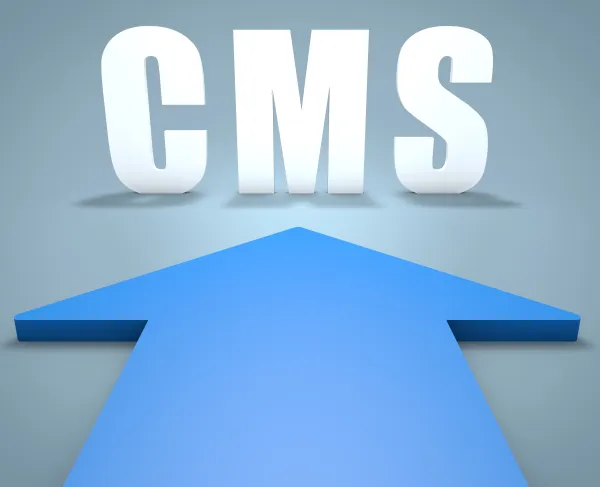EM Coding Alert
Know What Stays, What Goes, in the 2021 E/M Shakeup
Say goodbye to 99201, hello to 99XXX. Though it didn’t deliver the final word, the 2020 Medicare Physician Fee Schedule (MPFS) final rule gave us the strongest indication yet about what the office or other outpatient visit E/M codes and guidelines will look like when they take effect on Jan. 1, 2021. There’s a lot to take in, but here is a good overview of what will change — and what will stay the same — in E/M coding just a few short months from now. Background: The critical part of the CY 2020 MPFS relates to the overhaul of outpatient E/M services for new and established patients. The rule finally ties up documentation loose ends, solidifies payment levels, and outlines the add-on code; all changes are slated to begin in January 2021, according to CMS. “Historic simplifications to billing requirements mean that clinicians will be able to focus on recording the information that’s most important to keeping a patient healthy,” says HHS secretary Alex Azar, in a release. “As we move toward a system that pays more and more providers for outcomes rather than procedures, we look forward to freeing clinicians from even more of these burdens.” Industry input: The American Medical Association (AMA) worked with CMS over the past year to reduce documentation requirements for E/M office/outpatient visits and hopes this will improve healthcare across the board. “This new approach is a significant step in reducing administrative burdens that get in the way of patient care,” says Patrice A. Harris, MD, MA, AMA president, in a press release. “Now it’s time for vendors and payers to take the necessary next steps to align their systems with E/M office visit code changes by the time the revisions are deployed on Jan. 1, 2021.” Here Are the E/M Specifics You may be wondering why CMS only outlined the E/M changes in the 2020 final rule, instead of actually implementing them. The agency wanted “to allow time for provider education, changes to workflow, and updates to electronic health records [EHRs] and systems” for this “revised approach to billing for E/M visit codes,” explains Miranda Franco, senior policy advisor with Holland & Knight LLP in Washington D.C., in the Holland & Knight Healthcare Blog. Make the most of that time by considering these five E/M changes you need to prepare for in 2021, as outlined in the CY 2020 final rule: 1. Established patients: CMS keeps E/M service codes 99211-99215 (Office or other outpatient visit for the evaluation and management of an established patient …). 2. New patients: The agency cuts CPT® code 99201 (Office or other outpatient visit for the evaluation and management of a new patient, which requires these 3 key components: A problem focused history; A problem focused examination; Straightforward medical decision making …) but retains the others (99202-99205) in the code set. 3. Revisions: The final rule “revises the times and medical decision-making [MDM] process for all of the codes and requires performance of history and exam only as medically appropriate,” a CMS fact sheet notes. 4. Definitions: To better align with CPT® Editorial Panel advice, E/M service code definitions will be revised to accommodate the finalized changes to documentation and time, suggests the final rule. 5. Add-on code: According to the rule, “it was not clear what would comprise ‘usual’ time given the new time ranges for the office/outpatient E/M visit codes,” but a new CPT® code — 99XXX (Prolonged office/outpatient E/M visit…) — will be available as an add-on. Important: “CMS, however, is not making any changes to the E/M office visits captured in the 10-day and 90-day global codes,” Franco writes in analysis of the rule. “CMS plans to continue to assess and develop an approach to revaluing global surgery procedures, including the associated post-operative visits.” Some Specialties May See E/M Pay Cut with New RVUs After CMS ditched its unpopular 2019 blended payment proposal for these E/M visits, the agency decided to pay the CPT® codes by their individual levels, according to the CY 2020 MPFS proposed rule. Plus, the AMA Specialty Society Relative Value Scale Update Committee (RUC) recommended the relative value units (RVUs) for the aforementioned E/M codes be updated starting in 2021. Stakeholders urged CMS to phase in these new rate changes, the final rule indicates. “As these office/outpatient E/M visit codes make up around 20 percent of total PFS expenditures, we understand commenters’ concerns with the magnitude of the redistributive adjustment necessary to budget neutralize the increased values,” acknowledges CMS. But, the plethora of commentary on the E/M changes fell on deaf ears — even though some specialties will likely suffer under the expected RVUs, as CMS plans to go ahead and adopt the AMA RUC-recommended RVUs in 2021 anyway. But stakeholders’ trepidation didn’t stop the agency from pushing forward — and that could pose a problem for some practices. “Increases in reimbursement for E/M services will result in a positive impact for providers that receive a large part of their revenue from E/M, i.e., family medicine. Whereas for other providers that do not frequently bill E/M codes, CMS is expecting a negative impact,” says Franco. Reasoning: CMS can’t really measure how the new RVUs will roll out because it may release other rules that impact its “strategy,” the final rule indicates. “Given that these revised codes and values do not take effect until CY 2021, and we do not know the magnitude of redistribution resulting from other policies we may adopt through rulemaking before then, we believe it would be premature to finalize a strategy in this final rule as these values would not be effective until CY 2021,” CMS says. The agency adds, “However, we intend to consider these concerns and address them in future rulemaking. Based on our review of public comments, we are finalizing valuation for CPT® codes 99202 through 99215, as proposed for implementation beginning in CY 2021.”
Related Articles
EM Coding Alert
- Countdown to 2021:
Know What Stays, What Goes, in the 2021 E/M Shakeup
Say goodbye to 99201, hello to 99XXX. Though it didn’t deliver the final word, the [...] - Guidelines:
Take These 4 Tips for Precision Online Digital E/M Coding
Here are all the guidelines you need to know to bill 99421-99423. The deletion of [...] - Specialty Spotlight:
Keep Your ED Coding on the Level With This Advice
MI, trauma cases don’t always add up to 99285. When a reader recently asked us [...] - You Be the Coder:
Want to Bill 99241-99245 Frequently? Consult the Answer to This Question
Question: Our ophthalmologist performed an office consultation on a patient and his insurer does still [...] - Reader Question:
Get the Timing Right Before Coding for Prolonged Service
Question: Our interventional radiologist saw a patient during an E/M service for a prolonged amount [...] - Reader Question:
Don't Modify This E/M Venipuncture Scenario
Question: Should I apply a modifier 25 onto an E/M visit code (992xx) when my [...] - Reader Question:
Look to These Guidelines to Know Your History
Question: Would you consider a physician documenting “No sick contacts” acceptable for the family history portion [...]




